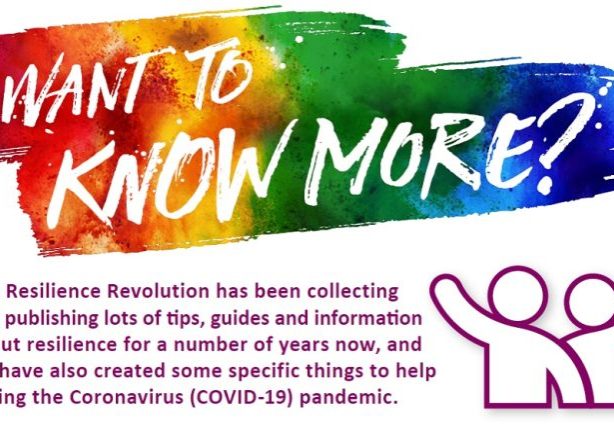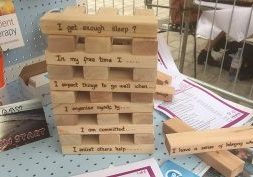The Resilience Framework & Covid-19: A tool that anyone and everyone can use to help build resilience and get through tough times
In Blackpool, young people, adults and our whole community have been learning about resilience as we lead a world’s first Resilience Revolution. It means anyone who lives, works or volunteers in Blackpool can play a part in making our town a more resilient place to grow up and live. Resilience is the ability to bounce forward from tough times. The Coronavirus (COVID-19) pandemic is one of those tough times – affecting us all in different ways. In the Resilience Revolution, we use a Resilience Framework as a way to set out things that research tells us can help people and communities build resilience. It is made up of 42 actions we call Resilient Moves.
We have created a leaflet specifically for Blackpool residents, which is being printed and distributed to every household in the town. Inside this Resilience Framework & Covid-19 leaflet are two versions of our Resilience Framework. One created by young people for young people, and the Family Version – designed to be used by whole family groups or adults. We hope that by sharing the Frameworks with everyone in Blackpool, we can all make, and encourage one another to make, Resilient Moves to get through tough times.
We are proud to be from Blackpool and have therefore chosen landmarks from our town to represent our ideas (you can find out more about the development of the Blackpool Family Framework and further ideas on using it). If you are using the Framework in another town or city, you could adapt these ideas for your own area.

